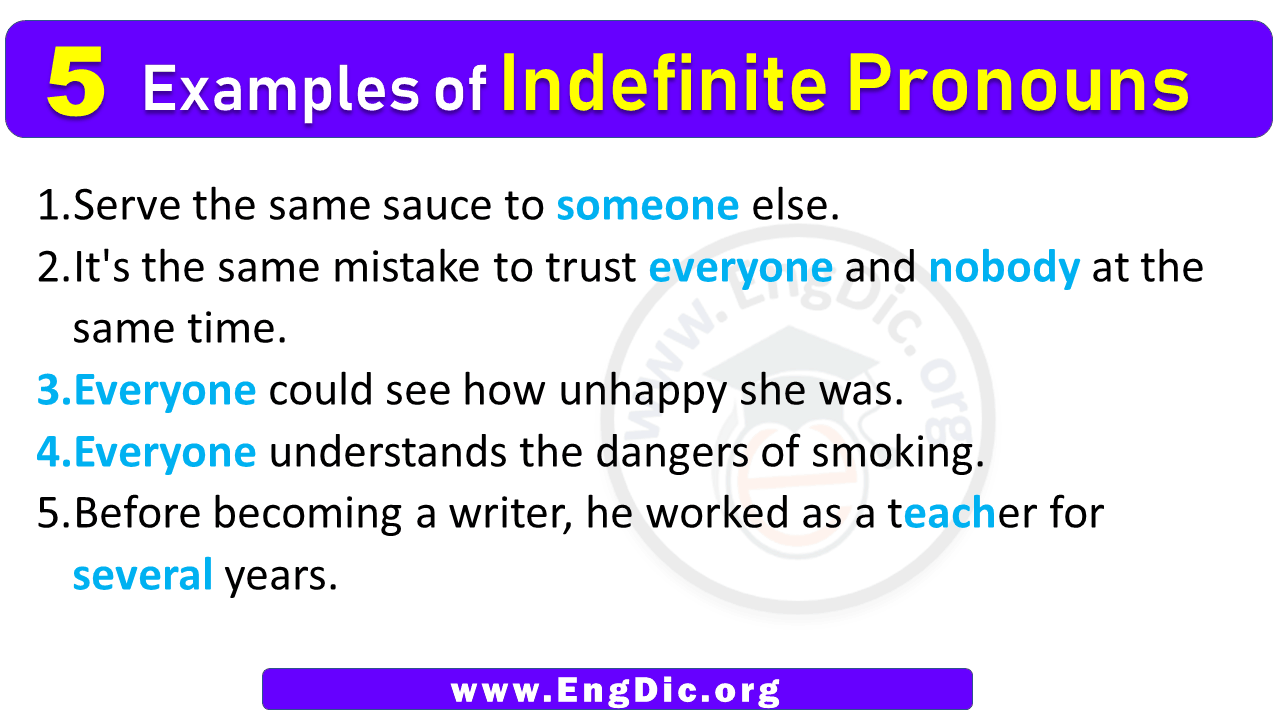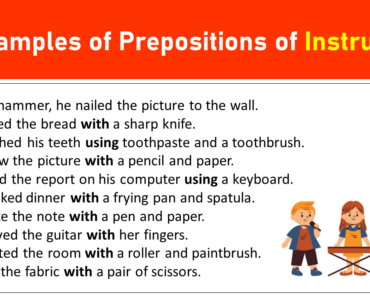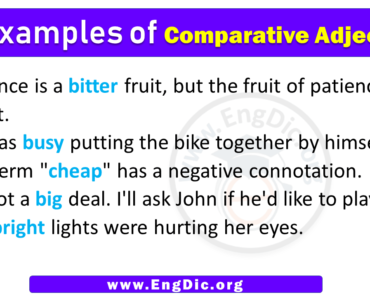5 Examples of Indefinite Pronouns in Sentences! Indefinite pronouns are words that refer to persons, places, or things without specifying which one. These pronouns can be used to make a sentence less specific and can often be interchangeable with other words in the sentence. In this article, we’ll provide five examples of indefinite pronouns used in sentences to help you understand when and how to use them correctly. We’ll also discuss how indefinite pronouns function differently depending on their context.
Related: 100 Examples of Indefinite Pronouns
5 Examples of Indefinite Pronouns in Sentences
here are five examples of indefinite pronouns with explanations:
- “Everyone” – Everyone enjoyed the party.
In this sentence, “everyone” is an indefinite pronoun because it refers to an unspecified group of people. It does not indicate any specific individuals but instead refers to all people present at the party. “Everyone” is singular and therefore requires a singular verb, “enjoyed”.
- “Something” – I’m looking for something to eat.
In this sentence, “something” is an indefinite pronoun because it refers to an unspecified thing or object. It does not indicate any specific food but instead refers to any type of food that the speaker may desire. “Something” is singular and requires a singular verb, “to eat”.
- “Nobody” – Nobody knows the answer.
In this sentence, “nobody” is an indefinite pronoun because it refers to an unspecified group of people. It does not indicate any specific individuals but instead refers to everyone who does not know the answer. “Nobody” is singular and requires a singular verb, “knows”.
- “Many” – Many people attended the concert.
In this sentence, “many” is an indefinite pronoun because it refers to an unspecified number of people. It does not indicate a specific quantity but instead refers to a large but unspecified number of people. “Many” is plural and requires a plural verb, “attended”.
- “Anything” – I’ll do anything to make it up to you.
In this sentence, “anything” is an indefinite pronoun because it refers to an unspecified action or task. It does not indicate any specific action but instead refers to any action that the speaker can take to make it up to the other person. “Anything” is singular and requires a singular verb, “to make”.

Last updated on April 4th, 2023 at 05:21 pm






